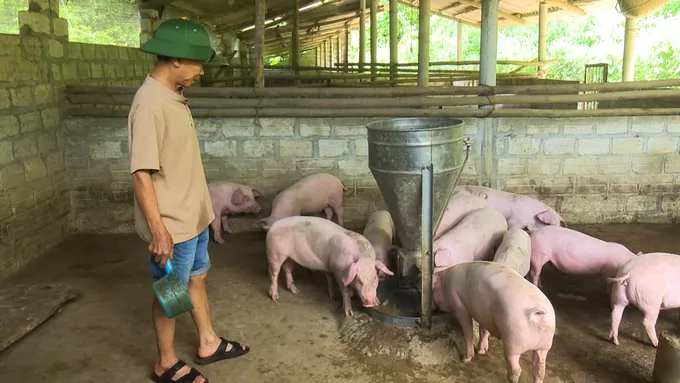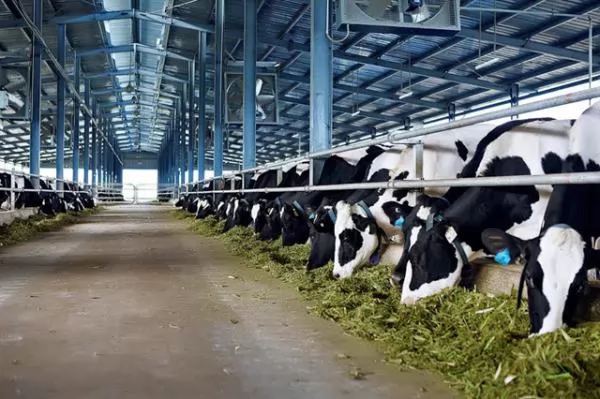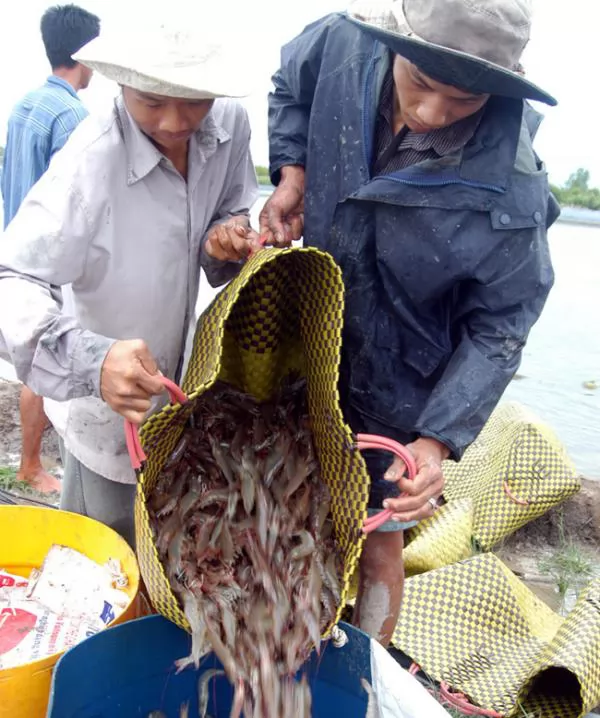Bac Kan basically has African swine fever under control

Livestock farmers in Bac Kan slowly expand the herd to serve the year-end market. Photo: Ngoc Tu.
(VAN) After a period of intense outbreaks, the situation of African swine fever in Bac Kan has gradually settled down. Livestock farmers begin to restock the herd.
By the end of November 2024, the African swine fever epidemic has come to an end in Cho Don commune and Bac Kan city. The whole province has 75/102 communes, wards and towns (accounting for approximately 70%) making their announcement about this matter.
In Cho Don district, African swine fever broke out in 18/20 communes during its peak, causing great damage. After many months of persistent disease prevention work, all communes no longer have signs of disease. As the district’s total herd is currently 25,000 pigs, farmers have started to restock their herd.
Tran Thi Mien, Deputy Head of Office of Agriculture and Rural Development of Cho Don district, said, “In order to restock the herd effectively, the district has provided guidance to help the farmers report to the grassroots authorities. The imported pigs must have a clear origin and great health conditions, vaccinated against African swine fever and other diseases according to regulations.
For seeds imported outside the province, there must be quarantine papers (with negative test results for African swine fever). Newly imported breeding pigs require at least 14 days of isolation before entering the herd. Farmers need to organize good farm hygiene, detoxification, disinfection of cages and breeding tools to ensure safety for the livestock herd.

The condition of restocking is to have pigs injected with vaccines to prevent disease. Photo: Ngoc Tu.
African swine fever has appeared in Bac Kan city since July, then spread to all 8/8 communes and wards. It is finally put to an end thanks to the localities’ synchronous solutions. Statistics show that as of November 2024, African swine fever has caused more than 4,000 livestock households in 719 villages and 102 communes in all districts and cities.
In October, the disease outbreaks began to decrease. At the end of November, the epidemic temporarily settled down, the whole province had 75 communes announcing the end of the epidemic, and 21 communes had passed 21 days without detecting new cases.
According to Ha Van Huan, Chairman of Quang Phong Commune People's Committee (Na Ri district), people in the commune mainly practice small-scale livestock farming, so the disease causes severe damage. After announcing the end of the epidemic, the commune has encouraged them to restock the herd. A number of breeding support programs under national target programs have also been relaunched.
“Although it is small-scale pig farming, this is an important source of income for a part of rural people. The control of disease will help people have conditions to restock the herd and recover their economy, thereby securing livelihood," said Chairman Huan.
The African pig cholera has temporarily settled, but Bac Kan province is still implementing solutions to solve the outbreaks in the remaining communes, preventing the disease from reappearing in the localities that are recently free of disease.
As for communes that have not yet dealt with the epidemic completely, local authorities must mobilize resources and promptly provide support in terms of materials and chemicals to avoid generating new outbreaks. The localities will eliminate sick pigs or those suspected of being infected with the disease in accordance with the regulations, resolutely prevent and handle cases of trading and transporting sick pigs, or illegally disposing dead pigs.

Pig farming in Bac Kan is gradually moving from small household to farm scale. Photo: Ngoc Tu.
Some communes have not yet announced the end of epidemic, so in case breeding establishments deliberately restock the herd or import pigs when the conditions are not secured and let the outbreak occur, the commune People’s Committee will declare administrative violations and not support funding for the discard of sick pigs. Establishment owners will be subject to penalties and have to handle the aftermath themselves under the supervision of local governments and specialized agencies.
The grassroots authorities will review and make accurate statistics on the total pig herds and the number of pigs that have been injected with the African swine cholera vaccine. The local veterinary forces continue to give out directives and urge farmers to soon perform vaccination for their pig herds.
In order to support farmers during the restocking process, localities will proactively grant funding to help farmers who suffered damages by animal diseases from January 1, 2024 to August 31, 2024 under Decision No. 1855/QD-UBND dated October 25, 2024 of Bac Kan People's Committee.
Author: Ngoc Tu
Translated by Samuel Pham
Maybe you are interested

Tech important to promoting dairy industry
Việt Nam had large room to promote the dairy industry with the application of technology in farming and processing to establish value chain, given the rising demand for dairy products in the domestic and global markets...

Shrimp farmers told to halt polluting practice
HCM CITY (VNS)— The Directorate of Fisheries and local authorities have told farmers in Cuu Long (Mekong) Delta not to breed white-legged shrimp in fresh water areas as wastewater from breeding could pollute water sources.

Kien Giang Province farmers switch to cajuput
More farmers in Kien Giang Province's Giong Rieng District have switched to growing cajuput trees on unproductive rice fields, fallow areas and lands with acid sulphate soil, optimal places for them to grow.





